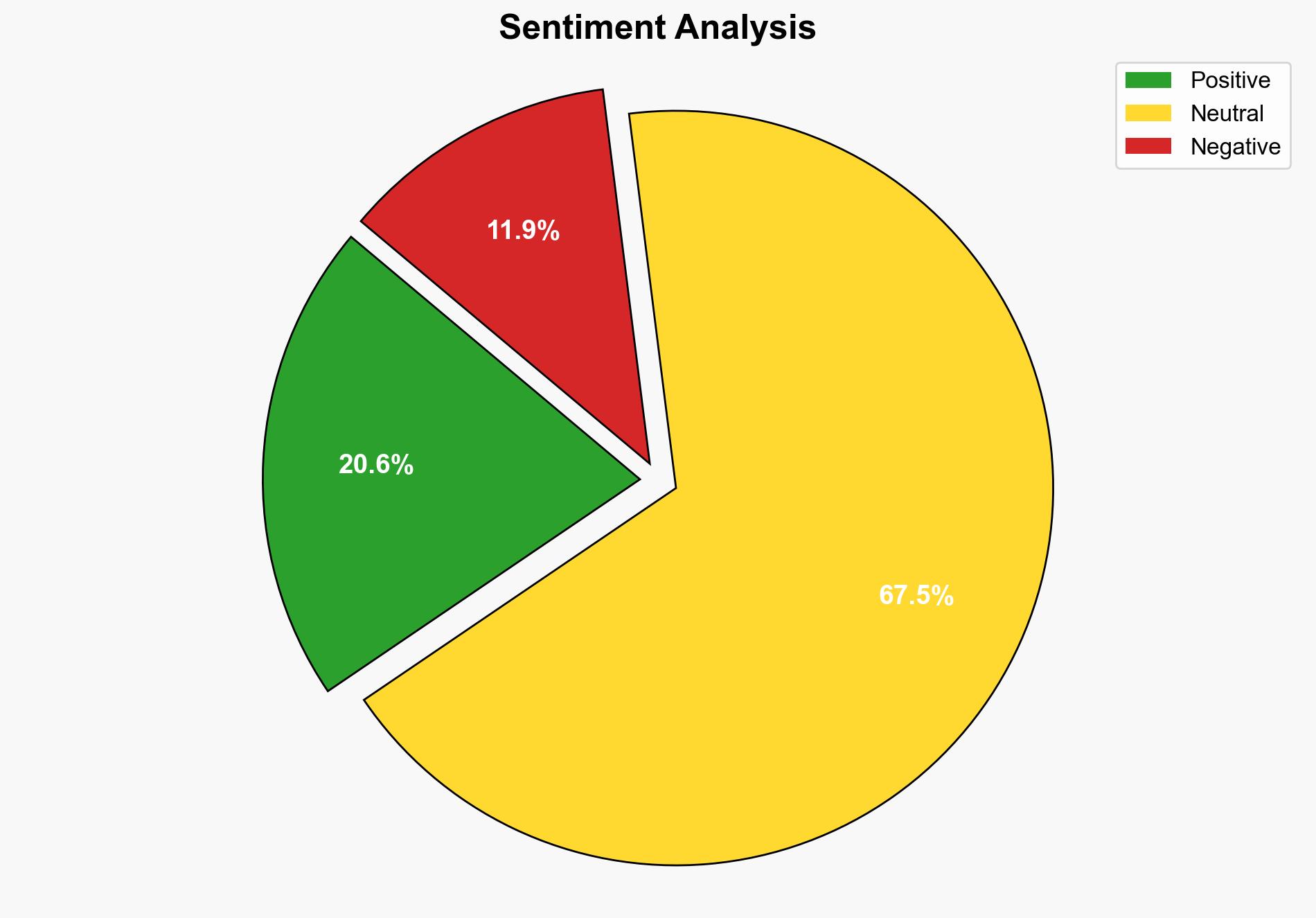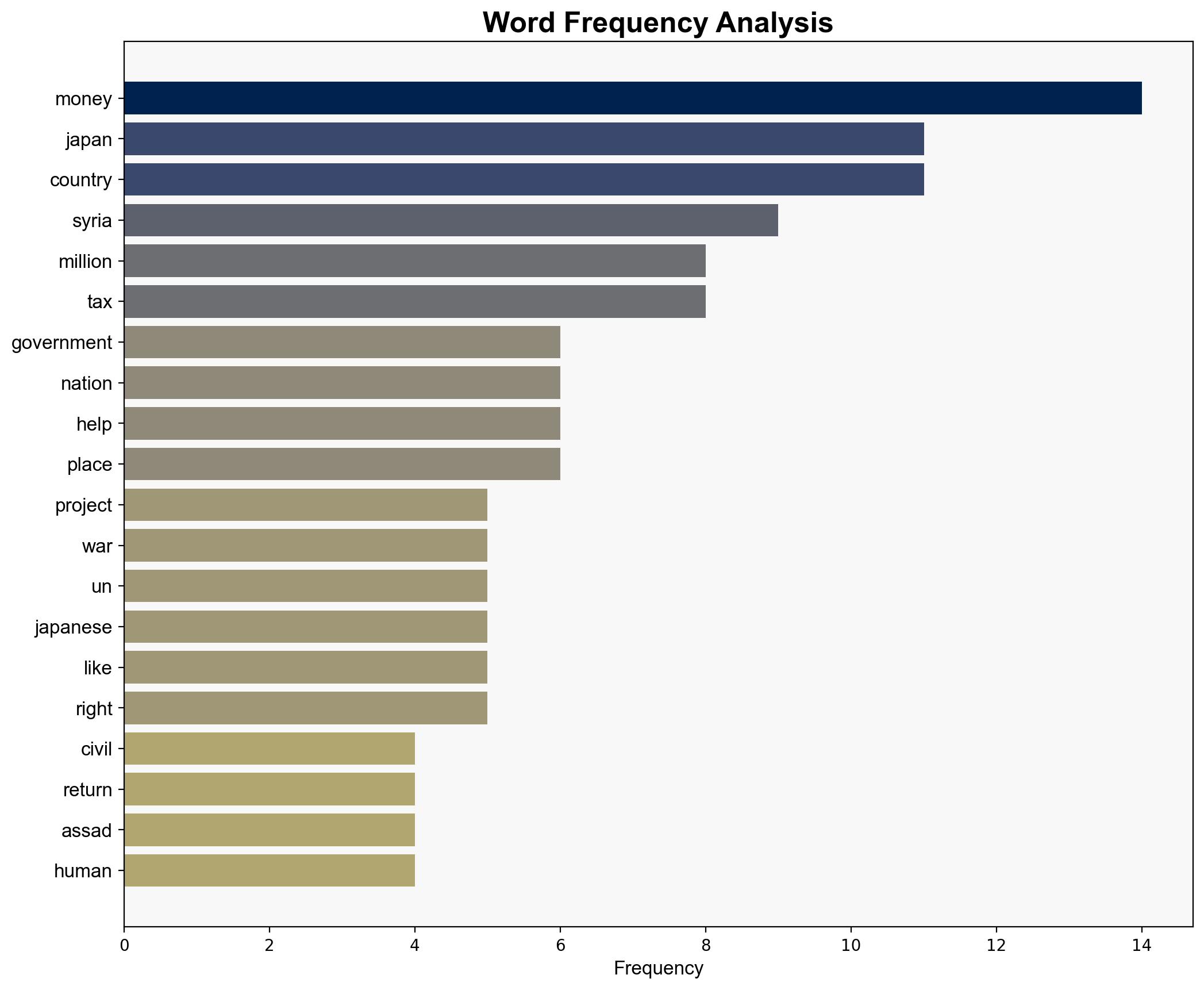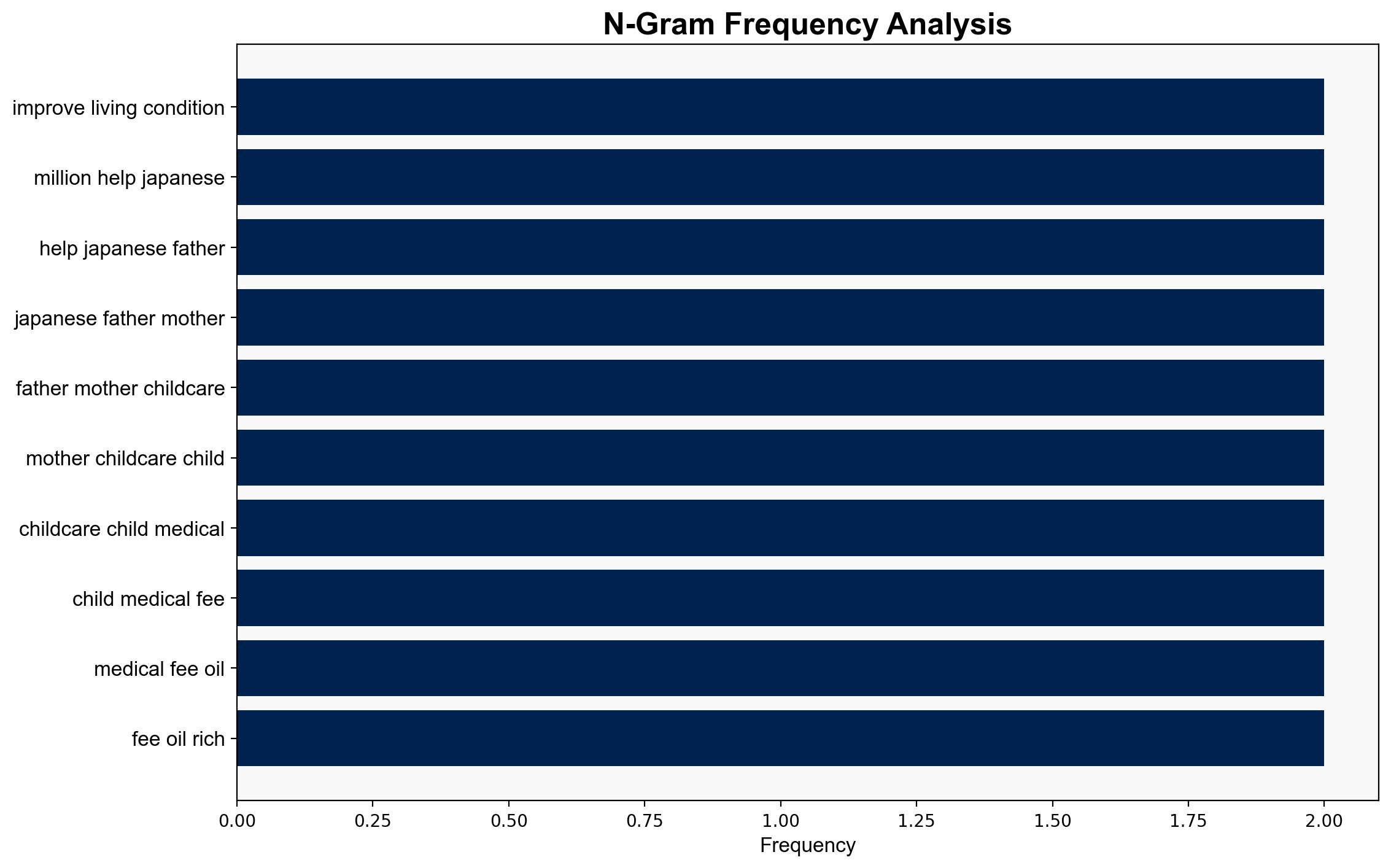Japan to give 55 mil aid to UN for better living conditions in Syria – Japan Today
Published on: 2025-08-31
Intelligence Report: Japan to give 55 mil aid to UN for better living conditions in Syria – Japan Today
1. BLUF (Bottom Line Up Front)
Japan’s decision to provide $55 million in aid to the UN for improving living conditions in Syria is strategically aimed at stabilizing the region and supporting humanitarian recovery. The most supported hypothesis is that Japan seeks to enhance its international standing and influence in Middle Eastern geopolitics. Confidence level: Moderate. Recommended action: Monitor the implementation of aid and its impact on regional stability.
2. Competing Hypotheses
1. **Hypothesis A**: Japan’s aid is primarily motivated by humanitarian concerns and aims to facilitate the safe return of Syrian refugees by improving living conditions and infrastructure.
2. **Hypothesis B**: Japan’s aid is strategically motivated to increase its geopolitical influence in the Middle East and position itself as a key player in post-conflict reconstruction efforts.
Using ACH 2.0, Hypothesis B is better supported due to Japan’s historical pattern of leveraging aid for strategic influence and the timing of the aid following significant geopolitical shifts in Syria.
3. Key Assumptions and Red Flags
– **Assumptions**: Japan’s aid will be effectively utilized by UN Habitat to improve living conditions. The Syrian government will cooperate with international efforts.
– **Red Flags**: Potential misuse of funds by local actors, lack of transparency in aid distribution, and ongoing instability in Syria may hinder aid effectiveness.
– **Blind Spots**: Limited visibility into the local implementation of aid projects and potential resistance from local factions.
4. Implications and Strategic Risks
– **Economic**: Successful aid implementation could stabilize local economies, but mismanagement could lead to wasted resources.
– **Geopolitical**: Japan’s increased involvement may alter regional power dynamics, potentially provoking reactions from other influential states.
– **Psychological**: Effective aid could improve Japan’s image as a humanitarian leader, while failure could damage its reputation.
5. Recommendations and Outlook
- Monitor the impact of aid on refugee return rates and local stability.
- Engage with UN Habitat to ensure transparency and accountability in fund usage.
- Scenario Projections:
- Best Case: Aid significantly improves living conditions, facilitating refugee returns and enhancing Japan’s international standing.
- Worst Case: Aid is mismanaged, leading to increased instability and wasted resources.
- Most Likely: Aid provides moderate improvements, with mixed impacts on regional stability.
6. Key Individuals and Entities
– UN Habitat
– Japanese Foreign Ministry
– Syrian caretaker government
7. Thematic Tags
national security threats, geopolitical strategy, humanitarian aid, Middle East stability




